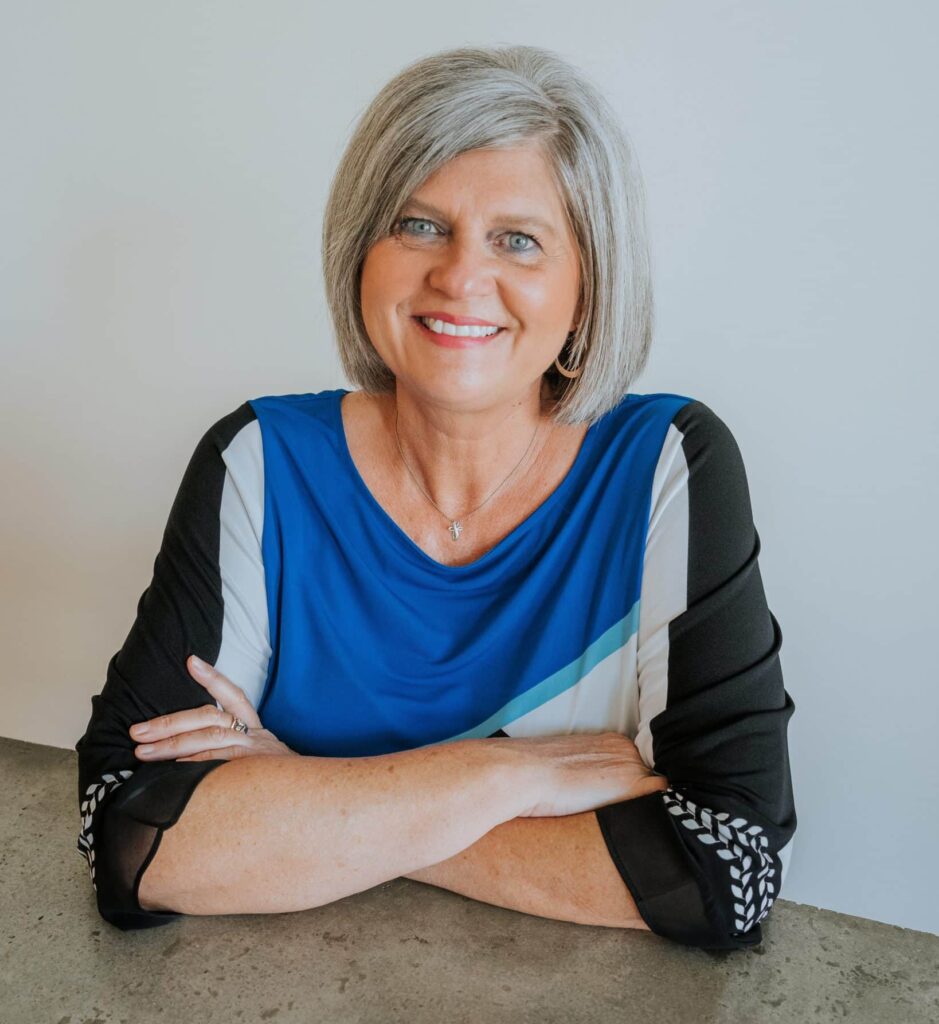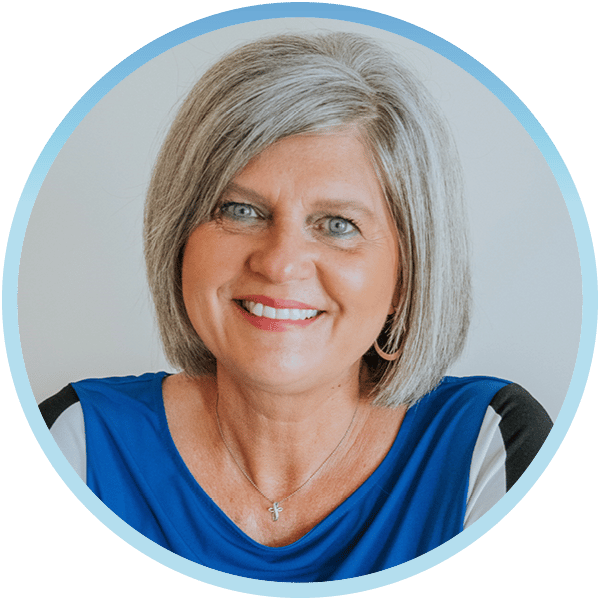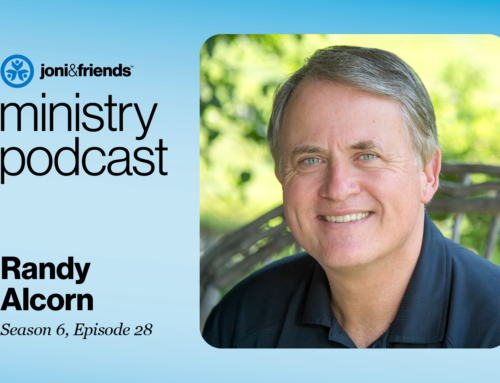Alzheimer’s Disease: Help and Hope for Caregivers
Subscribe to the Joni and Friends Ministry Podcast
When Susan Wahlers learned that her husband Dave was diagnosed with early onset Alzheimer’s disease, their life was thrown into disarray.
As they struggled with the progressive disease, friends faded into the background, caregiving became consuming, and Susan wrestled with loneliness, discouragement, and exhaustion.
But God authored a transformation in their life, even as Dave’s health declined.

When Dave passed away in 2019, God ignited a passion in Susan to help other caregivers. She joined Crystal on the Joni and Friends Ministry Podcast to share her story and help caregivers find strategies for better living as they support their loved ones with Alzheimer’s and other forms of dementia.
Early Signs of Alzheimer’s
Susan’s husband Dave got diagnosed with Alzheimer’s in his 50s. But signs of the disease came long before the diagnosis. Susan shared that the first clues were little things: forgetting keys, misplacing something, and instances of memory loss. At first doctors didn’t take the symptoms seriously. When you’re under 65, Susan shared, doctors don’t quickly consider the possibility of Alzheimer’s. They kept saying, “That’s normal. We all forget things.”
At work, Dave’s colleagues confirmed his and Susan’s suspicion that something was amiss. Dave went from organized to disorganized, from neat to messy. Susan recalls Dave having self-awareness of the change. But ultimately, the primary red flag for the onset of dementia has to be discerned. If a loved one experiences something (or exhibits behaviors) uncharacteristic for them over time, Susan says, pay attention.
Ask yourself, “Is my loved one reacting to situations and circumstances differently than expected?” If so, document what you observe.
For Dave, and many others with Alzheimer’s, a crisis comes before diagnosis. For the Wahlers, Dave’s company getting bought out precipitated the crisis. Dave got sent to a software training with people he’d never met. When it came to the new software, “Dave could not get it,” Susan recalls. Instead of seeking to understand or responding with kindness, the new colleagues made Dave the laughingstock of the class. He returned home in tears.
Susan and Dave prayed for guidance and Susan took on a new role—advocate. Sometimes she felt like a bulldog, pushing for doctors to take her husband’s symptoms seriously.
“We were confused. We were looking for answers and I am the type of personality that will dig and keep asking questions and, and push and say, no, we need to know what’s going on.”
Susan
Diagnosis Difficulties
Finally, after multiple rounds of testing, Dave was diagnosed with Alzheimer’s disease. Unfortunately the long diagnosis process is common. For people to get diagnosed with Alzheimer’s, “It takes an average of five years,” Susan says. And with people under 65, doctors often fail to take it into consideration.

Even when they received a diagnosis, Susan remembers being dismissed quickly from the doctor’s office: “Diagnose and adios,” she calls the experience. She remembers sitting in the car with Dave, processing the news.
They agreed that whatever came next, they would walk the journey with God. Then Dave made a statement that stuck for the rest of his life: “Let’s make it count.”
After his diagnosis Dave lived for six years. He and Susan turned to God to learn how to “make it count,” and adopted two theme verses:
“To them God has chosen to make known among the Gentiles the glorious riches of this mystery, which is Christ in you, the hope of glory.”
Colossians 1:27
“And we know that in all things God works for the good of those who love him, who have been called according to his purpose.”
Romans 8:28
These truths, Dave and Susan found, apply even when you don’t feel good. They remain true—and full of hope and encouragement—when life doesn’t go as expected.
Should I tell people about the Alzheimer’s diagnosis?
“Do we tell people or not?” Susan and Dave wrestled with this question. They wondered how people would react to the news that Dave had Alzheimer’s. In the end, they found guidance in Scripture:
“You are a chosen people, a royal priesthood, a holy nation, God’s special possession, that you may declare the praises of him who called you out of darkness into his wonderful light.”
1 Peter 2:9
Susan and Dave realized that the disease didn’t change their identity in God—they remained children of God, beloved image bearers. They accepted the responsibility of telling God’s story through their story and chose to bring their situation to light before others.
Telling others about Dave’s diagnosis also lightened the burden of living with the disease.
“There’s a lot of freedom and a lot of relief in being able to share this with family and friends.”
Susan
Being open also positioned them to teach people about Alzheimer’s, about caregiving, and about how God enters into suffering as the ultimate Comforter.
Understanding Alzheimer’s Disease and Dementia
Take it from Susan, getting informed is a key step to coping with Alzheimer’s and other forms of dementia. She offered the following advice for caregivers:
1. Enter into your loved one’s reality.
People living with dementia may experience hallucinations, delusion, tunnel vision, and fear. They may not be able to follow logic or reasoning like they used to. Instead of fighting their feelings and perceptions, accept and enter into your loved one’s reality. Try to understand their point of view instead of seeking to correct it.
2. Stay calm.
If your loved one is panicked or upset, do your best to stay calm. Pray, breathe, and remember you are not alone. If you need help, seek support. Give yourself grace. Caregivers need care too!
3. Investigate the need.
Remind yourself that if a person with dementia is “giving you a hard time,” that they are probably having a hard time, and likely can’t explain why. Ask yourself if the person could be cold, hot, tired, hungry, or in pain; do they perceive a threat, feel unsafe, or have an unmet need?
4. Communicate simply (use fewer words).
The more words you use, the more the person has to process. Use discernment and speak to your loved one in a way that works for him or her. Simplified communication may sound like:
Instead of asking a person, “What do you want for lunch?” it may be better to offer a simple choice: “Would you like a turkey sandwich or a ham sandwich?”
Instead of saying, “I’m going to go to the bathroom. Do you want to go to the bathroom too?” simply say, “Let’s go bathroom.”
5. Do your homework.
In addition to learning about Alzheimer’s disease, do the practical preparation necessary to handle end-of-life questions and scenarios. Prepare a will and complete a power of attorney form. Taking care of these matters in advance is a gift to you and your loved ones.
When is it time to call Hospice?
Approaching the end of life can bring confusion, grief, and fear. People often hesitate to call hospice, Susan shares, “because it feels like conceding that the end has arrived.”
Susan had the support of hospice services for the last three months of Dave’s life. Looking back at the degree of relief hospice provided—both for Dave and for her—she wishes she’d called them sooner.
Hospice offered help with day-to-day tasks like bathing; they brought equipment; they helped Susan know what to expect.

Of course no amount of preparation, or hospice support, can eliminate grief. Susan urges caregivers of people with dementia to make room for lament, sadness, and grief—not just when a loved one passes away. Losses begin long before death. As Dave’s Alzheimer’s disease progressed, Susan shares:
“We lost a lot of things. We had to move in with family so I could go to work. So we lost our way of life. We lost energy, time, and dreams. Just because you have the person you love present with you doesn’t mean you haven’t faced loss.”
Susan reminds other caregivers that sadness isn’t a bad emotion. It is appropriate to grieve and lament when losses happen. In the midst of sadness, allowing God to speak into places of pain can bring new hope and life.
Care for Caregivers
Too often caregivers’ needs go unmet. For one, Susan shared, caregivers need simple validation of what they’re going through. Caregivers need a chance to air their emotions and process their experiences. Caregivers also need connection to the outside world. Dealing with dementia can shrink the world. Caregivers may not have the energy or time to reach out for connection or help.
Sometimes caring for a caregiver might mean providing an hour of respite so they can go to the grocery store without worry. A text or phone call can expand a lonely caregiver’s world. A kind listening ear might change the spirit of the day.
Susan’s experience with caregiving, and God’s provision in her and Dave’s life, inspired her to found Makers of Care, a nonprofit that provides resources for caregivers in dire need of support during a long-term crisis.

Makers of Care
If you are a caregiver in need of support or strategies, get help today through support groups, workshops, and church resources.











